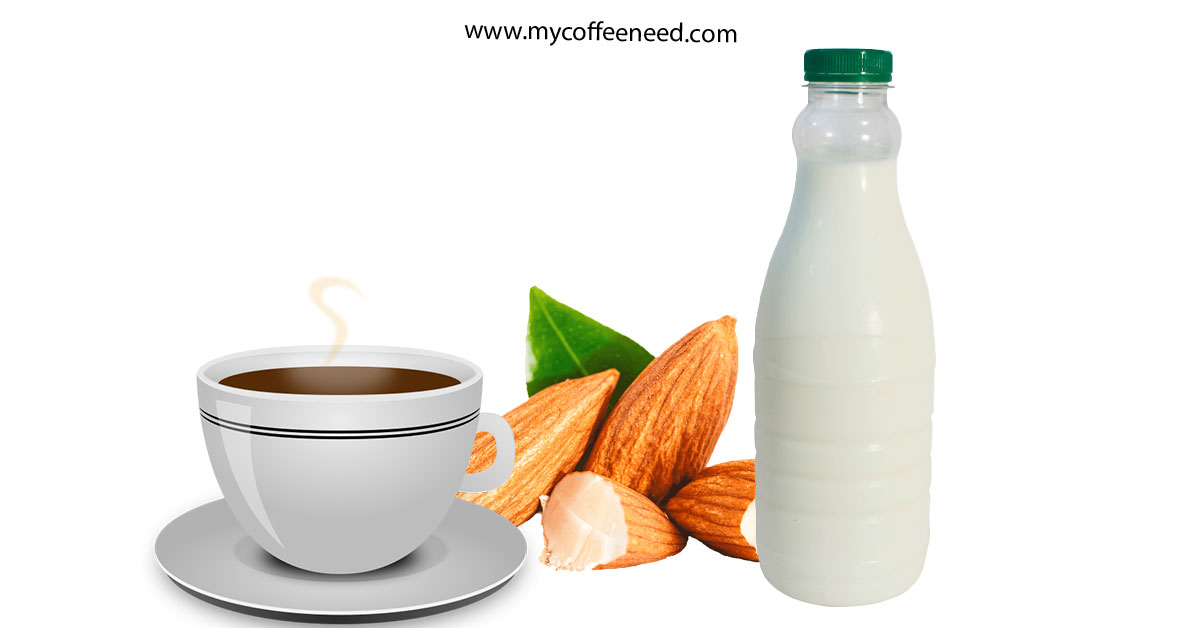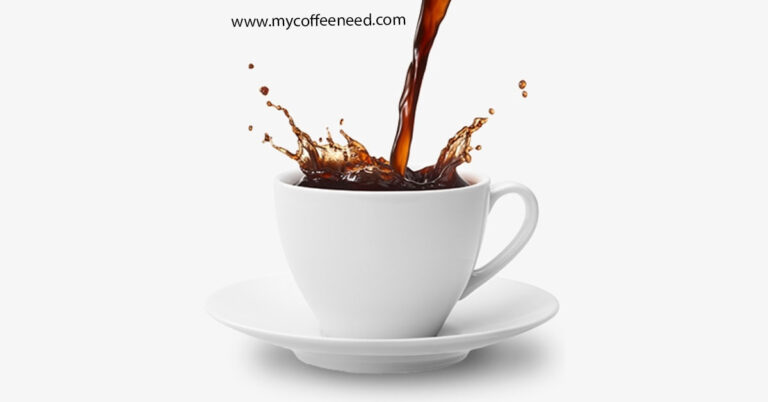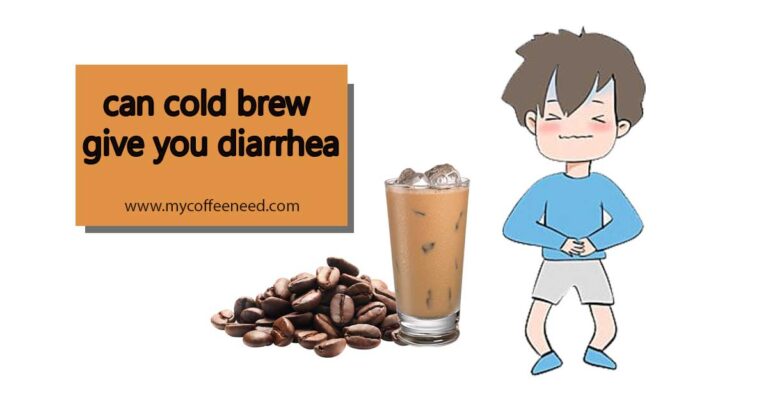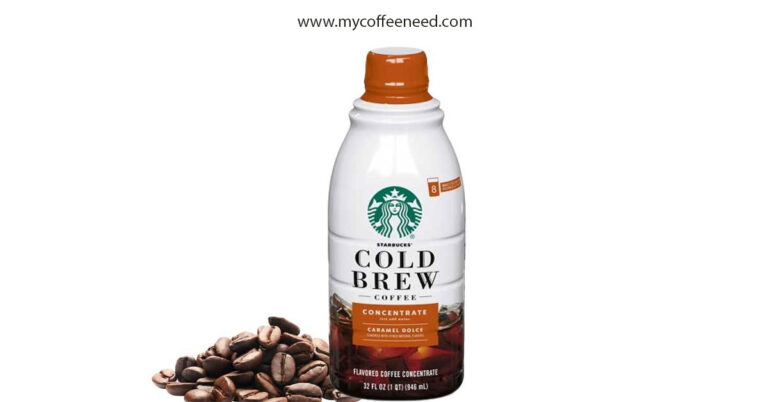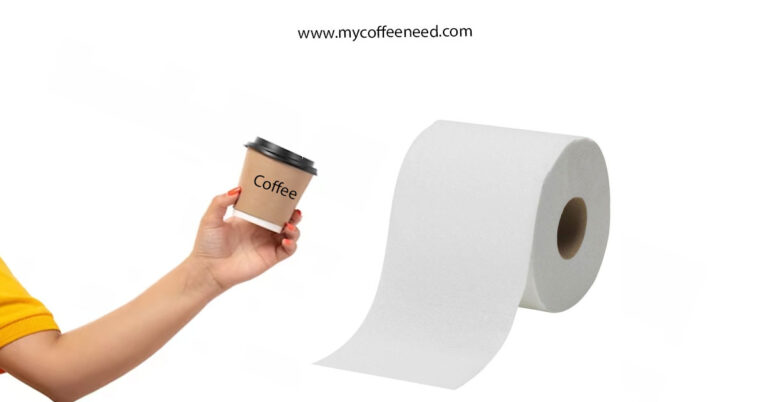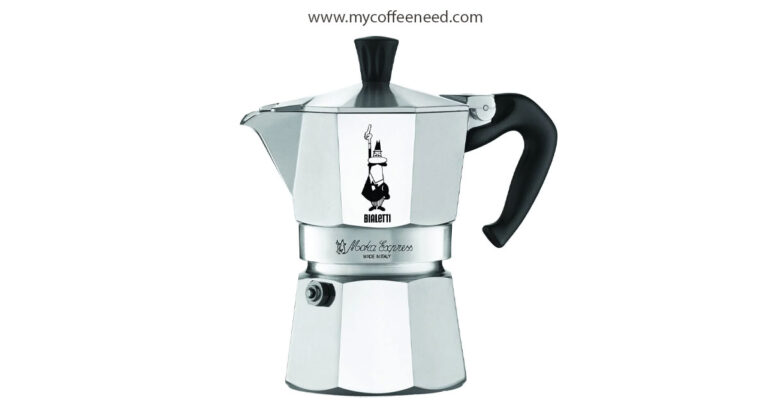Does Unsweetened Almond Milk in Coffee Break a Fast?
In recent years, the popularity of intermittent fasting has soared, with many seeking its numerous health benefits, including improved insulin sensitivity, enhanced brain function, and a higher metabolic rate. An essential part of this lifestyle is the fasting window, where calorie intake is kept to a minimum or even zero.
One commonly asked question is: Does unsweetened almond milk in coffee break a fast? As a coffee lover, you might be wondering if a small splash of unsweetened almond milk in your morning cup of coffee disrupts your fasted state. Let’s delve into the nutrition facts and fasting principles to discover the answer. But there’s good news already; the answer might just make your fasting routine more enjoyable.
Fasting and Coffee
Fasting, whether for weight loss goals, religious reasons, or overall health, typically involves abstaining from calorie intake for specific periods. It’s during these fasting periods that your body’s insulin levels drop, boosting fat burning and enhancing insulin sensitivity. The small number of calories consumed should ideally not induce an insulin response, keeping you in a fasted state.
Enter the humble cup of black coffee. It’s a great option for those fasting, with virtually zero calories and the ability to keep your energy levels up. Furthermore, coffee has been shown to boost metabolic rate, support brain health, and even help in maintaining blood pressure.
Insulin Sensitivity
Insulin sensitivity plays a significant role in fasting. The more sensitive your body cells are to insulin, the less insulin your body needs to keep your blood sugar levels under control. It’s essential for your insulin levels to stay low during your fasting window to help maintain this sensitivity. This can lead to various health benefits such as improved heart health, brain function, and the prevention of insulin resistance – a precursor to type 2 diabetes.
The addition of any food or drink to your fasting window that might spike your blood sugar and, consequently, your insulin secretion, should ideally be avoided. A general rule of thumb is that any beverage below 50 calories is less likely to break your fast.
Blood Sugar Levels
Maintaining stable blood sugar levels is a primary objective of fasting. This helps the body maintain a state of fat burning, aids in controlling insulin resistance, and ensures optimal brain function. Consuming something that causes your blood sugar levels to rise can interrupt these benefits and break your fast.
For coffee drinkers, this means being mindful of what goes into that morning cup. Adding sweeteners, even natural ones, can increase your blood sugar levels. However, the addition of a small amount of unsweetened almond milk is a different story. This dairy alternative is a popular choice for its fewer calories and low sugar content, especially compared to regular milk or cream.
Fasting Period
Your fasting period, the time during which you consume zero or minimal calories, is critical to reaping the full benefits of fasting. Consuming something that induces an insulin response or increases your blood sugar levels during this period may disrupt your fast and its associated health benefits.
Black coffee, herbal tea, and lemon juice are often considered safe to consume during this time as they contain minimal to zero calories. But does a splash of unsweetened almond milk in your coffee fall into this category? With its low calorie and sugar content, it could be a great addition to your fasting period without disrupting your progress.
Fasting Window
The fasting window is a specified period when you abstain from eating to optimize health benefits like improved insulin sensitivity, better brain function, and enhanced metabolic rate. For most intermittent fasting plans, the fasting window ranges from 16 to 24 hours. The objective during this window is to avoid any food or drinks that would trigger an insulin response, thus keeping the body in a state of fasting.
Adding a splash of unsweetened almond milk to your morning coffee might seem harmless. And in truth, this minor addition may not significantly affect your insulin levels or blood sugar. However, it’s essential to monitor your body’s responses and adjust as needed to maintain the integrity of your fasting window.
Almond Milk and Coffee
Almond milk is a great choice for those following an intermittent fasting plan or ketogenic diet. It’s a plant-based milk alternative lower in calories and sugar than regular milk or cream. When unsweetened, it provides a creamy texture and slight nutty flavor to your coffee without significantly impacting your calorie intake or blood glucose levels. But does unsweetened almond milk in coffee break a fast?
A small amount of almond milk in your coffee isn’t likely to break your fast. According to the general rule of thumb, beverages under 50 calories won’t significantly disrupt your fasted state. A quarter cup of unsweetened almond milk contains approximately 10-15 calories, well within this limit. Therefore, a splash in your morning coffee should not affect your insulin sensitivity or blood sugar levels drastically, making it a suitable option for your fasting routine.
Unsweetened Almond Milk in Coffee
The question of whether unsweetened almond milk in coffee breaks a fast is a pressing one for fasting enthusiasts and coffee lovers alike. As a low-calorie, low-sugar alternative to dairy products, unsweetened almond milk is a popular choice for those seeking a creamy addition to their morning brew. But does it align with the principles of the fasting period and fasting window?
The consensus is that a small quantity of unsweetened almond milk in coffee does not typically break a fast. With only around 10-15 calories per quarter cup, this minor addition to your cup of Joe is unlikely to trigger an insulin response or cause a spike in blood sugar levels. Moreover, it provides essential vitamins and nutrients, such as vitamin E and healthy fats, without the potential negative side effects of artificial sweeteners or added sugars.
So, for those looking for a slight upgrade from coffee black, a splash of unsweetened almond milk is an ideal choice. It lets you enjoy a smoother, creamier texture in your coffee while staying within the guidelines of your fasting routine.
Calorie Intake
During your fasting window, keeping your calorie intake to a minimum is crucial. Consuming too many calories could prompt an insulin response, essentially breaking your fast. The general rule of thumb suggests staying below 50 calories during the fasting period, but keeping it as close to zero as possible is the best practice to maintain a genuine fasted state.
Adding unsweetened almond milk to your coffee won’t significantly affect your calorie intake. With only about 10-15 calories per quarter cup, it falls well within the acceptable limit. While it may not be zero calories, it’s close enough that it won’t drastically interfere with your fast. However, it’s important to monitor your body’s responses and adjust as necessary. If you find adding almond milk to your coffee affects your fasting goals, it might be better to stick with coffee black or switch to herbal tea or black coffee with a squeeze of lemon juice.
Health Benefits
Unsweetened almond milk offers a multitude of health benefits, making it a great addition to your fasting routine. Rich in essential nutrients, it contributes to heart health, brain function, and overall health, while aligning with your weight loss goals.
Almond milk is an excellent source of vitamin E, a powerful antioxidant that combats oxidative stress and inflammation, promoting heart health and brain function. It’s also low in sugar and carbs, which is beneficial for maintaining stable blood sugar levels and insulin sensitivity during your fasting window.
Furthermore, the low calorie content of almond milk aligns well with weight loss objectives common to many fasting routines. Combined with its creamy texture and ability to enhance your morning coffee without breaking your fast, unsweetened almond milk proves to be a worthy choice.
However, remember that while unsweetened almond milk has its benefits, it shouldn’t be used as a means to get extra calories during the fasting window. The aim should be to consume as few calories as possible to maintain the fasted state and reap the maximum benefits of your fasting routine.
Alternatives to Almond Milk
If you’re looking for alternatives to almond milk to use in your coffee during your fasting window, several options align well with the principles of fasting.
Black Coffee: If your main goal is to stay in a fasted state, drinking your coffee black is the best choice. With virtually zero calories, black coffee will not trigger an insulin response or increase your blood sugar levels.
Coconut Milk: Another popular choice is unsweetened coconut milk. It has a creamy texture similar to almond milk and provides healthy fats that can promote brain health and metabolic rate. However, it’s higher in calories, so use it sparingly.
Heavy Cream or Heavy Whipping Cream: While higher in calories, a small amount of heavy cream or heavy whipping cream can be used without breaking your fast. It can enhance the flavor of your coffee, but remember to use it in small quantities.
Butter or MCT Oil (Bulletproof Coffee): While it may sound unusual, adding a small amount of grass-fed butter or MCT (medium-chain triglycerides) oil to your coffee – known as Bulletproof coffee – is a common practice among those following a keto diet. These fats can help keep you full and boost your brain function, but they should be used in moderation due to their high calorie content.
Whichever you choose, remember to check the nutrition facts and be mindful of how your body reacts. While these additions can make your coffee more enjoyable, they shouldn’t compromise the benefits you gain from your fasting routine.
Coconut Milk
Unsweetened coconut milk is a great option for those on a fasting or keto diet. Derived from the flesh of coconuts, it’s rich in healthy fats, notably medium-chain triglycerides (MCTs), which are known to boost energy levels and brain function. It’s also lactose-free, making it an excellent choice for those with dairy intolerance.
Coconut milk adds a rich, creamy texture to your coffee and a subtle tropical flavor. However, it’s higher in calories compared to unsweetened almond milk. A quarter cup of coconut milk has approximately 50 calories, so using it sparingly during your fasting window is advised to avoid breaking your fast.
It’s also worth noting that while the MCTs in coconut milk can provide energy during fasting, they do stimulate an insulin response, albeit a smaller one than carbohydrates. Therefore, it’s important to monitor your body’s responses and adjust your consumption accordingly. Despite this, the small quantity typically used in coffee is unlikely to cause a significant disruption to your fasting state, making coconut milk a viable alternative to almond milk.
Oat Milk
Oat milk is another plant-based milk alternative that has gained popularity in recent years. Made from a simple process of soaking and blending oats before straining them, oat milk is known for its creamy texture and mild, slightly sweet taste, making it a great addition to coffee.
However, when it comes to fasting, oat milk may not be the best option. Compared to almond milk or coconut milk, oat milk has a higher calorie and carb count, with a quarter cup containing around 20-30 calories and approximately 5 grams of carbs. Consuming oat milk during your fasting window could potentially trigger an insulin response, thus interrupting your fast.
Furthermore, oat milk can contain added sugars, especially in certain flavored or sweetened varieties. It’s always important to check the label for any hidden sugars that could disrupt your fast. While the creamy texture of oat milk may make your coffee more enjoyable, it’s likely better suited for your eating window rather than your fasting window.
Soy Milk
Soy milk, made by soaking and grinding soybeans, followed by boiling and filtering the mixture, is a well-known dairy substitute. It’s a solid choice for vegans and those with lactose intolerance, offering a creamy texture and mild flavor for your morning cup of coffee.
When it comes to fasting, soy milk’s nutritional profile is a key consideration. Unsweetened soy milk contains about 20-30 calories per quarter cup, slightly higher than unsweetened almond milk but less than coconut milk. This makes it a possible option during fasting, provided it’s used sparingly. Like other milk alternatives, the goal is to avoid stimulating a significant insulin response or exceeding the general rule of thumb for calorie intake during your fasting window.
However, it’s crucial to note that many commercial soy milk products can contain added sugars and other additives. Always opt for the unsweetened variety to ensure it aligns with your fasting goals. As with all additions to your fasting routine, monitor your body’s response to determine if soy milk in your coffee supports your intermittent fasting plan or ketogenic diet.
MCT Oil
MCT oil, or Medium-Chain Triglyceride oil, is derived from coconut or palm kernel oil and has been growing in popularity, particularly among those on a ketogenic diet. It’s often used as an addition to coffee, known as Bulletproof coffee, for those following an intermittent fasting plan or keto diet.
The reason for its popularity lies in its unique properties. MCTs are a type of fatty acid that are rapidly absorbed and transported to the liver, where they are converted into ketones – a type of molecule that can be used by the brain for energy in the absence of glucose. This can lead to increased energy levels, improved brain function, and potential weight loss benefits.
However, MCT oil is high in calories, with a tablespoon containing around 100 calories. While it doesn’t trigger a significant insulin response due to its low carb content, the high calorie count can technically break a fast if you’re adhering to a strict fasting routine. Therefore, it’s best used in moderation and ideally during your eating window for the best health benefits.
As with any dietary change, it’s important to monitor how your body responds to MCT oil and adjust accordingly. If used correctly, it can be a powerful tool to support your overall health and fasting goals.
Other Options During Fasting
When it comes to hydrating and nourishing your body during the fasting window, there are other options besides milk or milk alternatives. Here are a few beverages you can enjoy without breaking your fast:
Herbal Tea: Herbal tea is a great option due to its zero-calorie content and the variety of flavors available. From chamomile to peppermint, these teas can provide a comforting alternative to coffee, without disrupting your fasting state.
Green Tea: Known for its antioxidant properties, green tea can be a good choice during your fasting window. Not only is it calorie-free, but it also contains a small amount of caffeine to help keep you alert.
Black Coffee: If you’re a coffee lover, drinking it black is the safest option to maintain your fast. It contains zero calories and provides a caffeine boost to start your day. Just remember to skip the sugar and cream!
Lemon Water: Infusing your water with a splash of lemon juice can add a bit of flavor without a significant number of calories or a spike in blood sugar levels. Lemon water also aids in digestion and provides a dose of vitamin C.
Bone Broth: Rich in essential nutrients, bone broth is a great choice during your fasting window if your fasting protocol allows it. It’s hydrating, satisfying, and can help keep your electrolytes balanced.
Regardless of the beverage you choose, remember to drink plenty of plain water to stay hydrated during your fasting period. Hydration is key for maintaining optimal bodily functions and supporting overall health.
Herbal Tea
Herbal tea is a fantastic option for those looking to maintain a fasting state while enjoying a warm, comforting beverage. The great news for fasting enthusiasts is that most herbal teas have virtually zero calories, ensuring they don’t disrupt your fasted state or trigger an insulin response.
Herbal teas offer a wide range of flavors from the naturally sweet taste of chamomile or rooibos to the refreshing mint or zesty ginger. This variety can help keep your palate satisfied during fasting periods without the need for added sugars or artificial sweeteners.
Aside from being a great addition to your fasting routine, herbal teas also come with a host of health benefits. Many herbal teas are rich in antioxidants that combat oxidative stress and inflammation, contributing to heart health, brain health, and overall wellbeing. Some, like chamomile, can have a calming effect and aid sleep, while others like peppermint can aid digestion.
Whether you’re fasting for weight loss goals, brain health, or insulin resistance, incorporating herbal tea into your routine can be a beneficial and enjoyable strategy. Just remember, as with any drink during your fasting window, it’s best consumed in its natural, unsweetened state.
Lemon Juice
Adding a splash of lemon juice to your water can be a refreshing and healthy way to enhance flavor during your fasting window. Lemon juice is low in calories, with the juice of one whole lemon containing about 12 calories. A small amount added to water, therefore, will likely have a negligible impact on your calorie intake.
However, lemon juice does contain a small number of carbs, which could theoretically trigger a slight insulin response. That said, the small amount typically used to flavor water is unlikely to disrupt a fast. As always, monitor your body’s responses and adjust your intake as needed.
Beyond its tangy flavor, lemon juice offers several health benefits. It’s a good source of vitamin C, a powerful antioxidant that can boost your immune system and skin health. It can also aid in digestion and, when consumed in warm water, can provide a soothing start to your day.
Bone Broth
Bone broth is an increasingly popular choice among those practicing intermittent fasting or following a ketogenic diet. Made by simmering animal bones and connective tissue, this nourishing brew is packed with beneficial compounds and essential nutrients.
While bone broth does contain a small amount of protein and a small number of calories, some fasting protocols allow it because its nutrient content can help stave off feelings of hunger and support overall health. A typical cup of bone broth might contain anywhere from 10 to 70 calories, so while it’s not technically ‘fasting,’ it’s still a low-calorie option.
The health benefits of bone broth are wide-ranging. It’s a rich source of collagen, which can improve skin health and joint function. Additionally, it’s high in the amino acids glycine and proline, which are beneficial for digestive and heart health.
If you’re considering incorporating bone broth into your fasting routine, it’s essential to check how it fits into your specific fasting protocol. For example, in a strict water fast or a zero-calorie fast, bone broth would be considered breaking the fast. However, in a modified fast or a bone broth fast, it’s the beverage of choice. As always, it’s best to listen to your body and adjust your fasting regimen as needed.
Sweetener Choices
When fasting, it’s essential to avoid anything that could potentially spike your insulin levels, and this includes most traditional sweeteners. However, there are a few sweeteners that you can consider if you absolutely must add something to your beverages during your fasting window:
Natural Sweeteners: Stevia and monk fruit extract are natural sweeteners that do not contain any calories or carbs, making them a popular choice among those on a ketogenic diet or practicing intermittent fasting. They’re much sweeter than sugar, so only a small amount is needed to sweeten your drinks.
Artificial Sweeteners: Artificial sweeteners like aspartame, sucralose, and saccharin are zero-calorie sweeteners commonly used in diet sodas and sugar-free products. While they don’t contain any calories or carbs, their effect on insulin and blood glucose levels can vary, and some studies suggest they could potentially disrupt a fast.
Sugar Alcohols: Sugar alcohols, such as erythritol and xylitol, are another low-calorie sweetener option. However, they can cause digestive discomfort in some people, and their impact on insulin levels is not completely clear.
In general, the best choice is to try to accustom your taste buds to unsweetened beverages during your fasting window. If you find this challenging, start by gradually reducing the amount of sweetener you use until you no longer need it. Remember, the main goal of fasting is to give your body a break from insulin secretion, and even non-caloric sweeteners can potentially interfere with this process.
Artificial Sweeteners
Artificial sweeteners are synthetic sugar substitutes that are often used in diet and sugar-free foods and drinks. These include aspartame, sucralose, and saccharin, among others. The primary draw of artificial sweeteners is their zero-calorie count, making them a seemingly perfect addition to a calorie-restricted diet or fasting regimen.
However, when it comes to intermittent fasting, the use of artificial sweeteners is a topic of ongoing debate. While these sweeteners contain zero calories, some studies have suggested they may trigger an insulin response, potentially disrupting the fasting state. This could affect your fasting goals, particularly if you’re fasting to improve insulin resistance or metabolic rate.
Moreover, some research links artificial sweeteners to negative side effects, such as altering gut bacteria, encouraging sugar cravings and overeating, and even increasing the risk of glucose intolerance and metabolic disease.
The best rule of thumb for fasting is to stick to water, black coffee, or unsweetened tea during your fasting window. If you feel the need for a sweetener, opt for a small amount and monitor your body’s response. Or better yet, try to wean yourself off sweeteners entirely for the duration of your fast to fully reap the benefits of your fasting window.
Natural Sweeteners
Natural sweeteners like stevia and monk fruit extract have become popular choices for those seeking a sugar alternative that won’t spike blood sugar levels. These sweeteners are derived from plants and contain zero calories and carbs, making them seemingly compatible with intermittent fasting and ketogenic diets.
Stevia is extracted from the leaves of the Stevia rebaudiana plant and is up to 200 times sweeter than sugar. Similarly, monk fruit extract, derived from the monk fruit or Luo Han Guo plant, can be up to 200 times sweeter than sugar. Because they’re so potent, only a small amount is needed to sweeten your beverages.
While these natural sweeteners don’t provide calories or carbs that could trigger an insulin response, there is ongoing debate about whether they may indirectly affect insulin levels. Some studies suggest that the sweet taste alone, regardless of calorie content, could potentially trigger an insulin response. The research on this is mixed, and more studies are needed to fully understand the effects.
The general rule of thumb for those practicing fasting is to keep intake of any sweetener, including natural ones, to a minimum during fasting windows. It’s always best to listen to your body and note any effects. As you grow more accustomed to your fasting regimen, you may find that you no longer need or want any sweeteners in your drinks.
Popular Fasting Drinks
During a fast, it’s crucial to stay hydrated while avoiding any beverages that could potentially break your fast. Fortunately, there are several popular fasting drinks that you can enjoy during your fasting window that won’t spike your insulin levels or disrupt your fasting state:
Black Coffee: Black coffee is a great option for the fasting period. It contains zero calories (as long as no milk, cream, or sugar is added) and can provide a much-needed energy boost, thanks to its caffeine content. It’s also rich in antioxidants, which can contribute to overall health.
Green Tea and Herbal Tea: Green and herbal teas are another great choice. They contain negligible calories and come with a host of health benefits, including antioxidants and other beneficial compounds.
Water: Plain water should be your go-to during a fast. It helps keep you hydrated, supports your body’s natural detoxification processes, and contains no calories.
Sparkling Water: For those who miss the fizz of soda, sparkling water can be a great option. It’s calorie-free and can provide a refreshing change from plain water.
Bone Broth: Bone broth is allowed in some fasting protocols, despite its small calorie content, due to its nutrient-dense nature. It’s packed with amino acids and collagen, which can support digestive and joint health.
Lemon Water: A splash of lemon juice in your water can make for a refreshing, flavor-filled drink. Just be mindful not to add too much, as it does contain a small number of calories and carbs.
Remember, the key during your fasting window is to avoid anything that could trigger an insulin response, and that includes most traditional sweeteners. Stick to these fasting-friendly beverages, and you’ll stay hydrated while reaping the benefits of your fast.
Bulletproof Coffee
Bulletproof coffee has gained significant popularity in recent years, especially among those following a ketogenic diet or intermittent fasting plan. The recipe involves blending regular coffee with grass-fed butter and medium-chain triglycerides (MCT) oil, resulting in a creamy, energy-packed beverage.
The high content of healthy fats from the butter and MCT oil provides a sustained energy release without spiking blood sugar levels. This can support brain function, increase fat burning, and potentially reduce hunger pangs. Because it’s low in carbs and protein, bulletproof coffee doesn’t have the same impact on insulin secretion as a regular meal would.
However, does bulletproof coffee break a fast? The answer depends on your main goal of fasting. If your aim is caloric restriction, then yes, bulletproof coffee will break your fast as it contains a significant number of calories. However, if your goal is to maintain a state of ketosis for fat loss or brain health, bulletproof coffee may fit into your plan because it can help keep your body in a fat-burning state.
It’s essential to remember that bulletproof coffee is high in calories and should be used as a meal replacement, not an addition to your regular meals. As with any dietary change, it’s recommended to consult with a healthcare provider to ensure it aligns with your health goals and needs.
Green Tea
Green tea is a fantastic beverage option during your fasting window. Rich in antioxidants and boasting a plethora of health benefits, this refreshing drink is a favorite among fasting practitioners.
One of the great things about green tea is that it contains virtually zero calories, making it ideal for fasting. It can be consumed hot or cold, and it provides a gentle caffeine boost that can help ward off any potential energy slumps without disrupting your fasting state.
The health benefits of green tea are significant. It contains a type of antioxidant called catechins, which have been linked to reduced risk of heart disease and certain types of cancer. Moreover, green tea may help improve brain function, fat burning, and insulin sensitivity, which are all valuable attributes for those engaged in intermittent fasting.
Like with coffee, it’s best to consume green tea plain during your fasting period, avoiding any added sugars or milk that could increase calorie intake and potentially break your fast. In general, green tea is a superb, health-promoting choice during your fasting window.
Frequently Asked Questions
Does unsweetened almond milk in coffee break a fast?
A: Generally, adding a small amount of unsweetened almond milk to your coffee will not break your fast. However, this depends on the quantity used and your personal goals and method of fasting. It’s always best to consume it in moderation and pay attention to how your body responds.
What’s the best choice for a fasting-friendly coffee creamer?
A: When it comes to adding creamer to your coffee during a fast, less is more. A small splash of unsweetened almond milk or coconut milk could work for most people. Avoid creamers with added sugars or artificial sweeteners as these can disrupt your fast.
Can I drink green tea during my fasting window?
A: Yes, green tea is a great choice during your fasting window. It’s virtually calorie-free and packed with health-promoting antioxidants. Just be sure to drink it plain, without added sugar or milk.
Does bulletproof coffee break a fast?
A: Whether bulletproof coffee breaks a fast depends on your fasting goals. If you’re fasting for caloric restriction, then bulletproof coffee would break your fast due to its high-calorie content. However, if you’re fasting to stay in ketosis or improve brain health, it may be compatible with your fasting plan.
Is it ok to use sweeteners during fasting?
A: The use of sweeteners during fasting is a topic of debate. Some sweeteners, even non-caloric ones, could potentially trigger an insulin response and disrupt a fast. It’s generally best to avoid sweeteners, but if you must use them, natural options like stevia or monk fruit extract are preferred over artificial sweeteners.
Related Articles:

